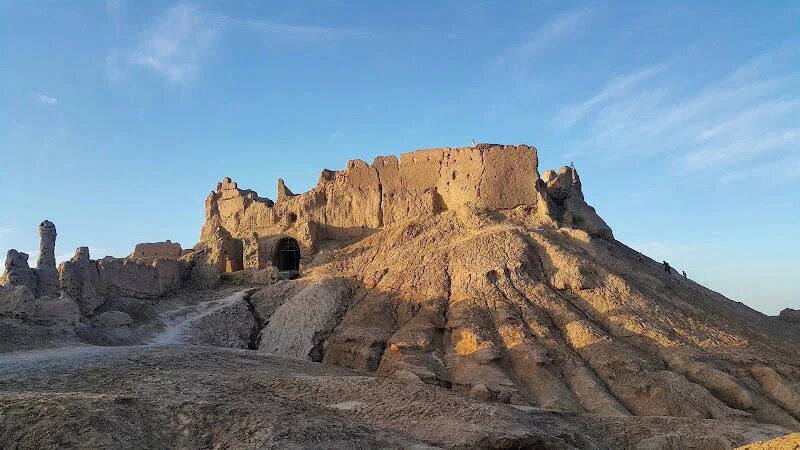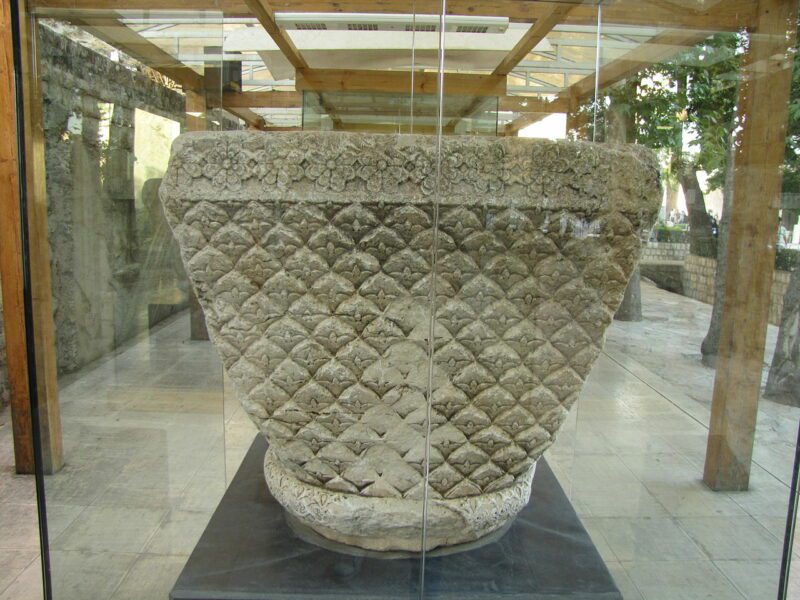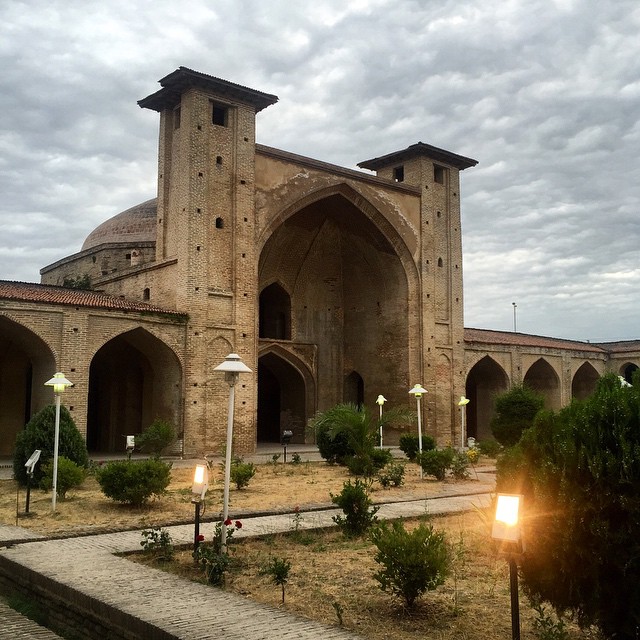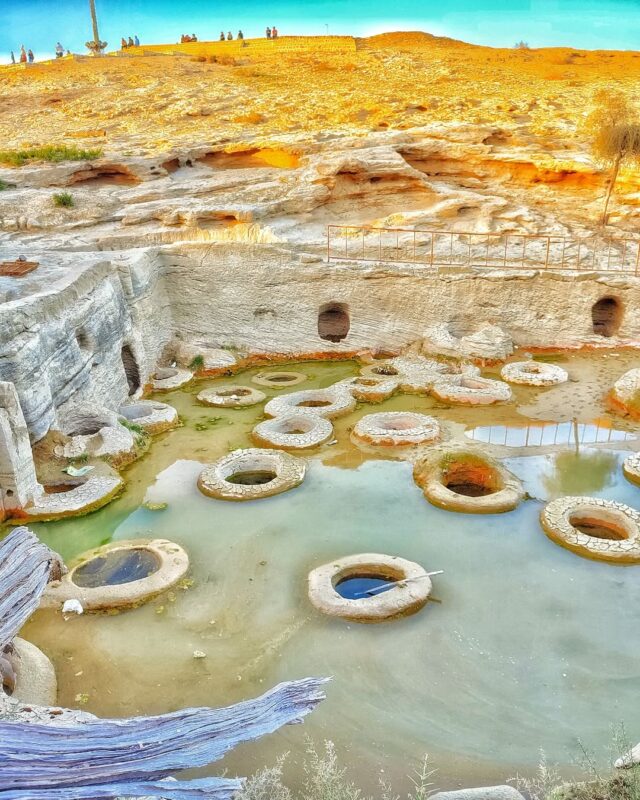Bampur Castle, which is the most famous castle in Balochistan, was the center of government of Kerman and Balochistan for a long time. According to the research of archaeologists, the age of this castle goes back to the Sassanid and Parthian periods. Bampur Castle was also used during the Seljuk kings. However, the people of Balochistan believe that this fort was built by Nader Shah Afshar. Of course, Nader Shah allowed Nasir Khan Brahui to build a castle in the Bampur area; But the building of Bampur Castle is much older than that. Mrs. Beatrice, an English paleontologist, explored a part of the slope of the hill below the Bampur Castle and found traces of the early history.
Bampur Castle is built in two parts, and these two parts are not the same in terms of height. The materials used in this castle are raw clay and clay, which is built on an artificial hill. The western and eastern walls have cylindrical towers at each end. Out of the four observation towers, only two towers with a height of two meters remain. Inside the castle, a row of rooms attached to the wall were intended for various purposes. There is also a well inside the castle. The height of the artificial hill on which the castle is located is 80 meters.
The end part which includes the main walls and entrance and exit doors and several towers and ramparts to protect the castle. The middle part was the place of residential houses and towers and ramparts. The upper part, which was special for the commanders and rulers of the castle, and most of the observation, was done from the tower and ramparts of this part due to its high height. A deep well can be seen in the area of the upper part, which has not been filled after several years. In the past, there was a stone-paved area inside the well, and it had a hole for the troops of the castle to pass through when the castle was besieged by the enemies. Currently, due to the movement of loose sand and the passage of time, this hole is blocked; but the well remains strong. Its eastern and western walls are far apart and closer to each other on the south side. The southern side is actually the smallest side of the castle. Each side had a cylindrical tower that reached the figure of ten towers.



